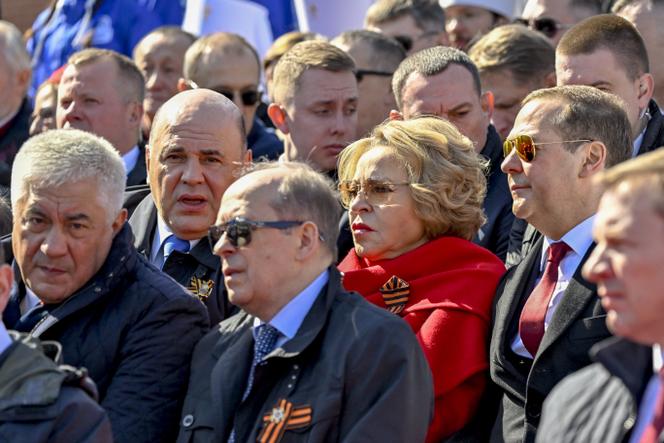


On February 21, 2022, behind the walls of the Kremlin, Vladimir Putin convened a Security Council meeting. On the agenda: Moscow's recognition of the independence of the self-proclaimed republics of Donetsk and Luhansk in Donbas, the starting point for the invasion of Ukraine three days later.
That evening, the entire top echelons of the Russian met with the president: heads of the intelligence services, top brass, prime minister, heads of regal ministries and presidents of assemblies. His close guard, twenty-three men and one woman – the president of the Federation Council, Valentina Matviyenko – took a great leap into the unknown.
Two years later, the participants in the decisive meeting are still in place. Despite 24 months of war that has turned the world and Russia upside down, no one has been sidelined, no face has disappeared from official photos, as was the practice under Stalin; none has even changed position.
The need for stability has been a constant in Putin's reign, in power since 2000. "Even before the war, changes within the elite were a simple game of musical chairs," said Tatiana Kastueva-Jean, director of the Russia-New Independent States Center at the French Institute of International Relations.
The 60 highest state officials are 64 years-old on average. Most of them were trained during the Soviet era, often in the security services. Some were working with Putin, from Saint Petersburg dojos to joint business ventures in the 1990s. This is in stark contrast to the 40-something generation at the helm in Ukraine.
This remarkable stability is also the result of the cohesion displayed by the elite itself. With the exception of Anatoly Chubais, appointed in 2020 as Putin's special adviser on climate issues and a figure from the regime's liberal wing, no major defections have been recorded. "The personalities in leadership positions owe everything to Putin, and have everything to lose without him," said Kastueva-Jean. "Loyalty, not meritocracy, has always been the foundation of this construction. Sanctions have strengthened the cohesion: Even the oligarchs who stood out from the crowd were unable to obtain their release from the West. As a result, those who were shocked by the war, or didn't want it, resigned themselves to it."
Even those who had shown hesitation, or even an embryo of opposition during that fateful meeting on February 21, 2022, such as Sergey Naryshkin, head of the SVR, the foreign intelligence service, since 2016, or Dmitry Kozak, one of the president's most influential advisers since the early 2000s, held firm. Those whose loyalty – or simply their liberal past – could have been questioned have given assurances by opting for one-upmanship, in the image of former president (2008-2012) Dmitry Medvedev, suddenly transformed into a hawk, found of nuclear threats.
You have 55.85% of this article left to read. The rest is for subscribers only.
